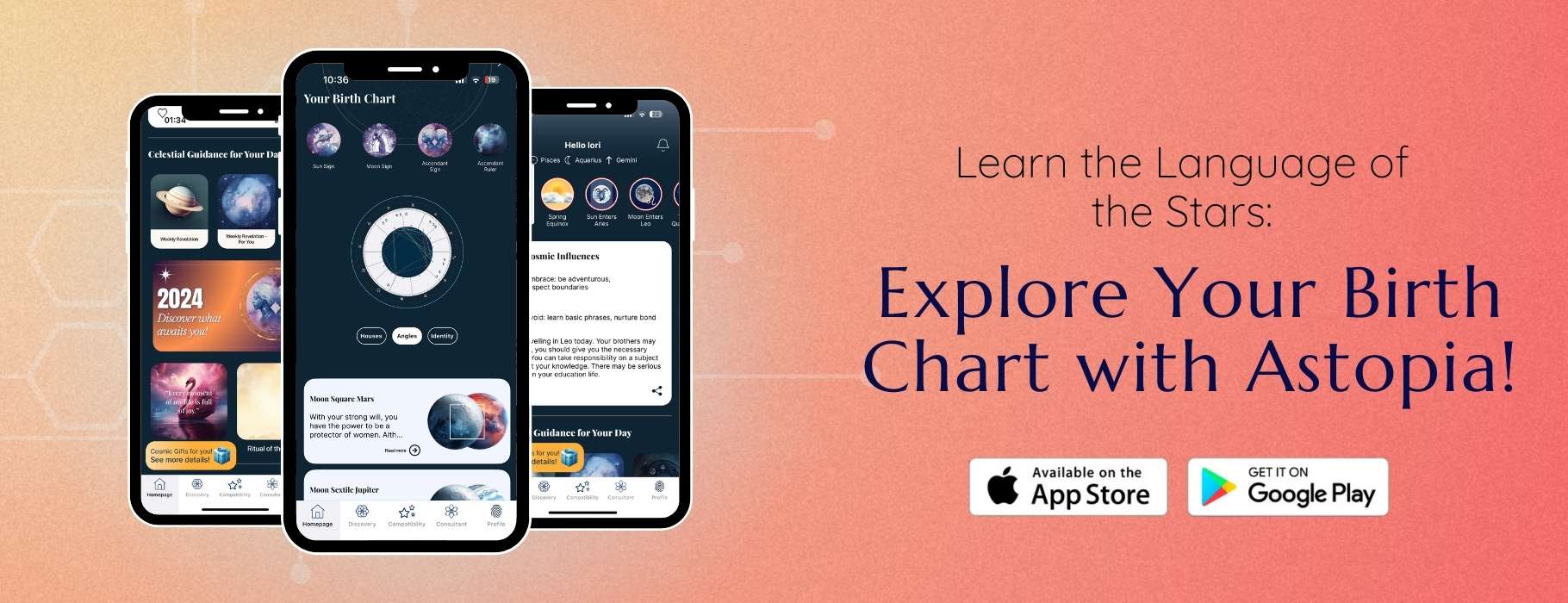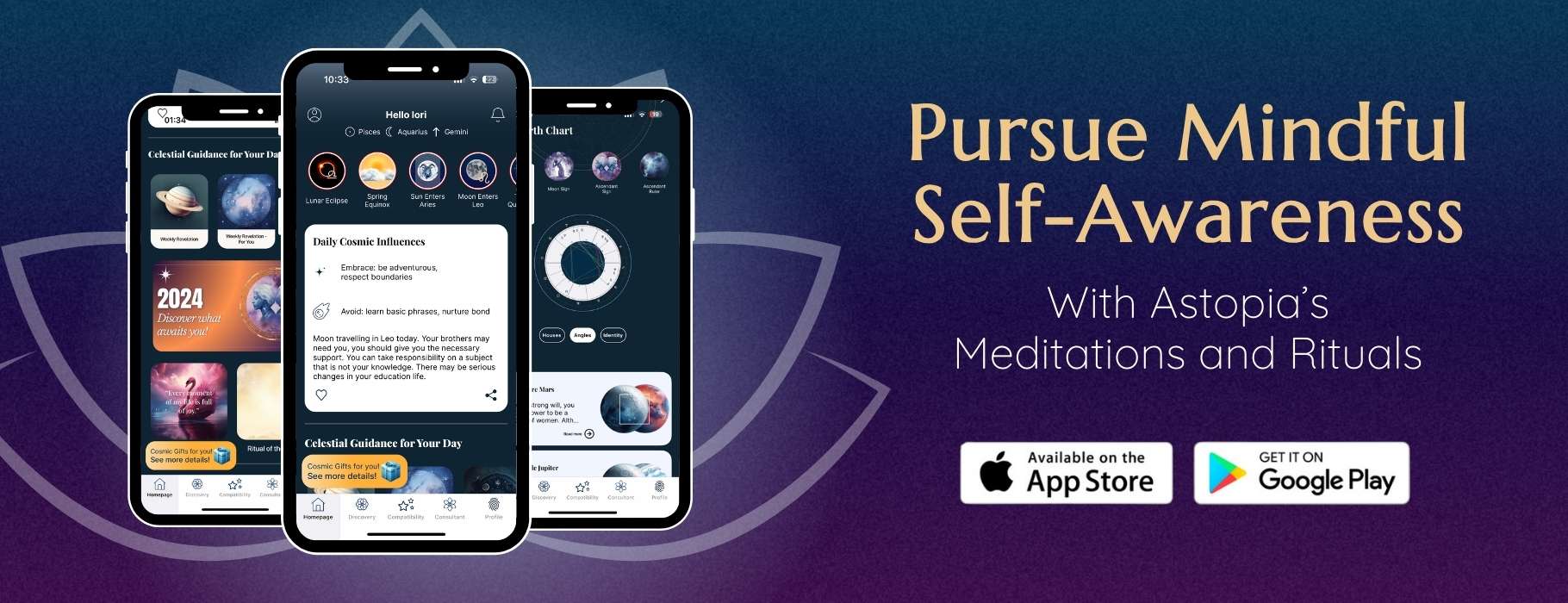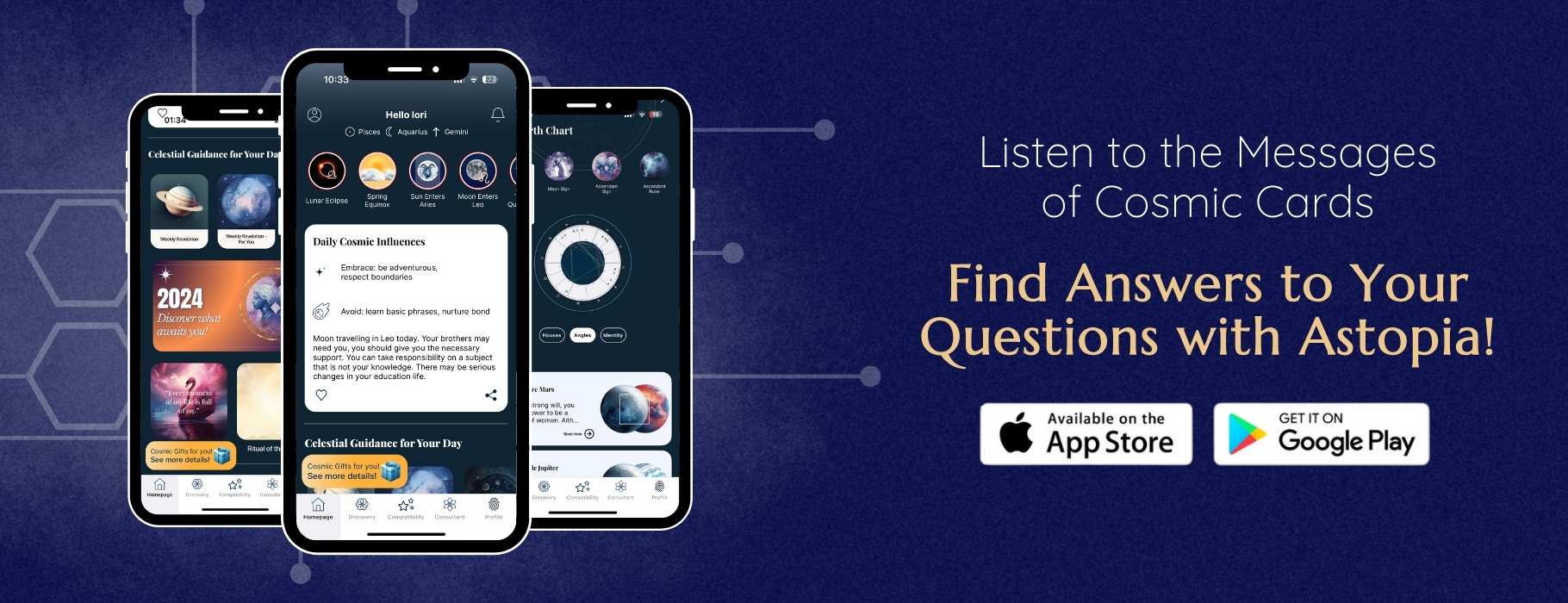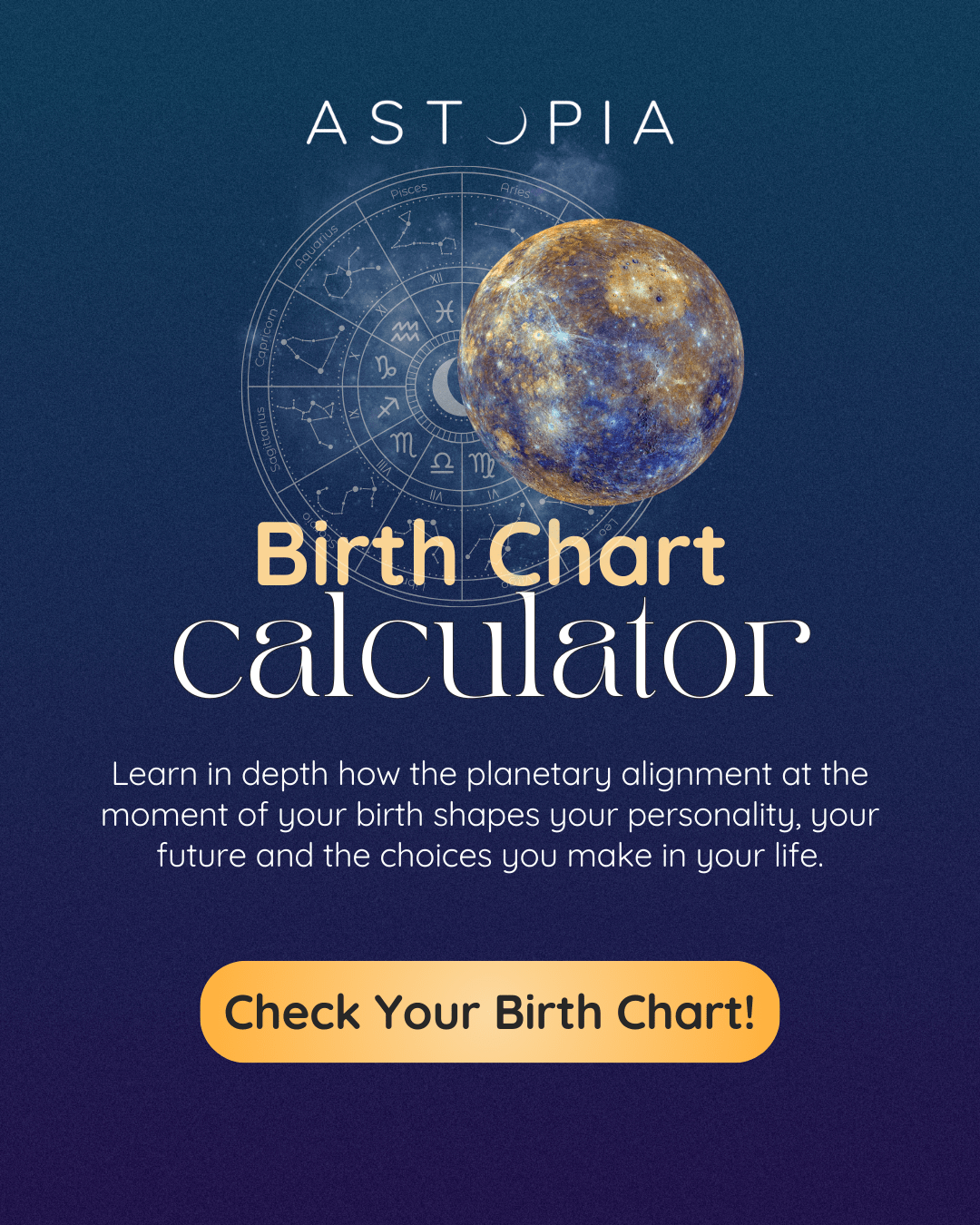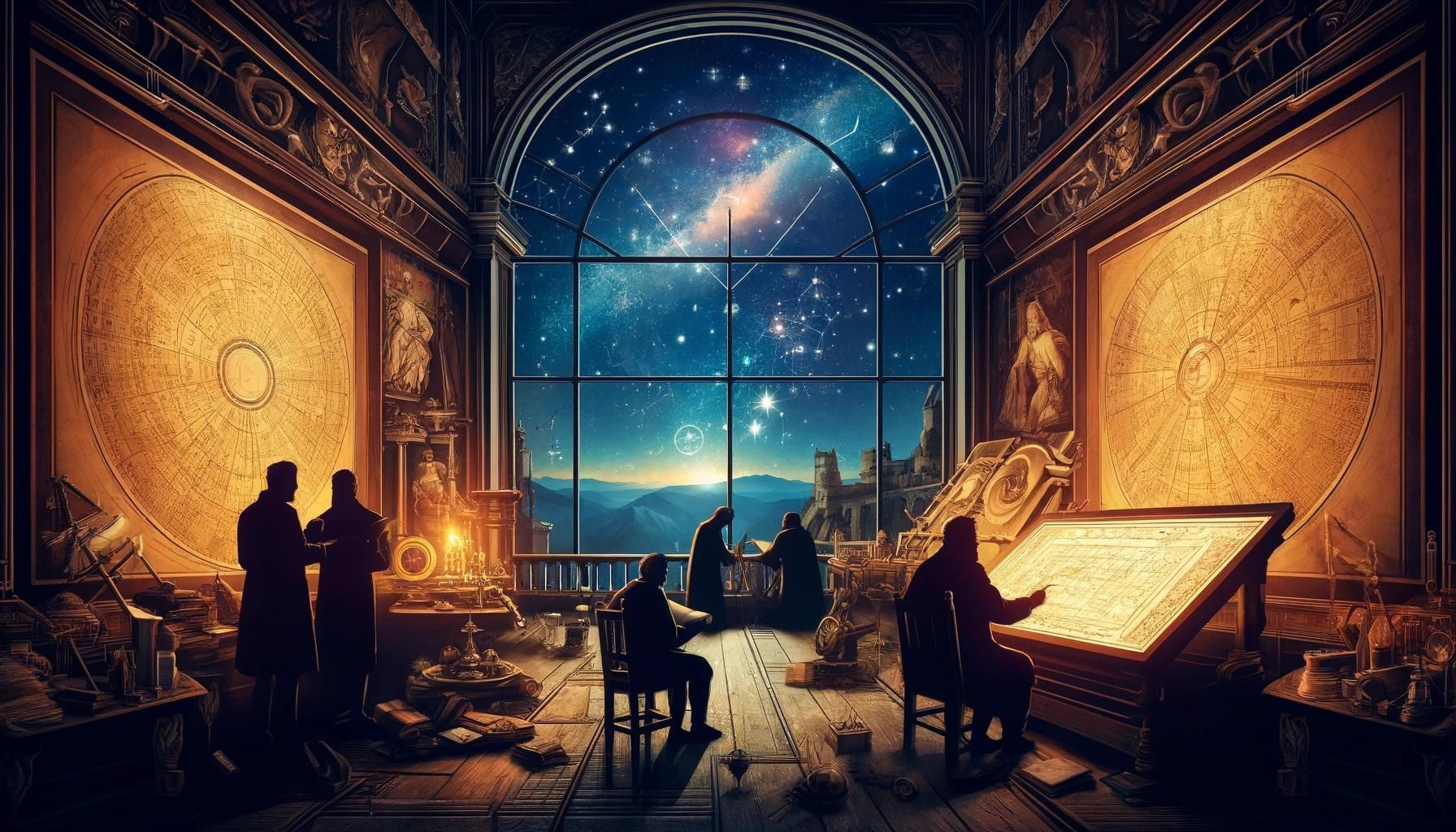
5/16/2024
Author: Astopia TeamFamous Astrologers in History: Sages Inspired by the Sky
Astrology is an ancient wisdom that studies the effects of the positions of stars and planets on human life. This discipline dates back thousands of years and has had a profound impact on the daily lives, agriculture, government and religious rituals of ancient civilizations. Throughout history, many cultures have adopted astrology as both a scientific and spiritual tool, and famous names in this field have shaped this ancient science with their contributions.
Continue to discover the sages inspired by the sky and details from the history of astrology under the guidance of Astopia!
Astrology History, Culture and Mythology
Astrology is the common language of humanity in its quest to unravel the mysteries of the stars. For thousands of years, different cultures have tried to understand the meaning of life and the workings of the universe by looking at the sky. In this process, astrology not only measured time but also interacted deeply with cultural and mythological elements.
Origins of Astrology
The origins of astrology date back to ancient times, intertwined with astronomy and mythology. People have turned to the sky to make sense of natural world events and to interpret the will of the gods. The first astrological records date back to the Sumerians in Mesopotamia. During this period, celestial events were recorded and accepted as divine messages.
Cultural and Mythological Ties
Each culture has interpreted and applied astrology in unique ways:
- Ancient Egypt: Egyptians considered the stars to be the homes of the gods. For example, the star Sirius (known as Sothis in Egypt) was considered the celestial representation of Isis, heralding the flooding of the Nile River and thus the beginning of the agricultural season.
- Mesopotamia: Mesopotamians, especially during the Babylonian period, mapped the sky in detail. By monitoring the movements of celestial bodies, they attempted to predict the future, and this formed the basis of Western astrology.
- Greece and Rome: The Greeks largely adopted astrology during the Hellenistic period. Ptolemy's works, in particular, played a critical role in systematizing astrological knowledge. During the Roman period, astrology was used in state affairs and in the administration of emperors.
Intertwining with Mythology
In addition to explaining celestial phenomena, mythological stories are enriched with astrological symbols. For example, Zeus throwing lightning in Greek mythology symbolizes the powerful and authoritarian influences of the planet Jupiter. Likewise, Venus, the goddess of love and beauty, is identified with the planet representing love and desires.
These cultural and mythological elements show that astrology is not just a star map, but also a language that helps people understand their relationship with the universe. In this context, astrology allows us to understand people's interactions with the universe and the cultural expressions of these interactions in different times and places. Astrology is a universal language of wisdom from past to present and sheds light on human history by finding different echoes in every culture.
Comparison of Western and Eastern Astrology
Astrology has been interpreted and applied in many different ways around the world. Western and Eastern astrology constitute the two main branches of this discipline, and each has developed its own unique methods, techniques and philosophical approaches. Examining the similarities and differences between these two systems helps us understand astrology's cultural diversity and universal appeal.
Similarities
Both systems use the positions of celestial bodies to understand human life and make predictions about the future. Western and Eastern astrology share the view that celestial events at the time of an individual's birth have an impact on personal characteristics, destiny and life path. Additionally, both systems recognize the cyclical nature of time and the interrelationship of celestial events with individual and social events.
Differences
1. Basic Structure:
Western Astrology organizes the zodiac circle according to the apparent orbit of the Sun around the Earth (the ecliptic). In this system, the zodiac consists of 12 signs, and each sign represents a specific region of the sky that the Sun passes through once a year.
Eastern Astrology (especially Chinese Astrology) places greater emphasis on the cycles of the Moon. In Chinese astrology, the zodiac consists of 12 animal signs, but these signs are associated with annual cycles and more often represent a person's year of birth.
2. Astrological Calculations:
Western Astrology often uses the tropical zodiac system. This system is a system in which the vernal equinox is taken as the starting point of the zodiac and is based on seasons.
Eastern Astrology often uses the sideral zodiac system. This system is based on the fixed positions of the stars and is closer to the actual star positions in the sky.
3. Philosophical and Cultural Approaches:
Western Astrology focuses on the freedom and personal development of the individual. Signs and planets are associated with personal characteristics and potentials.
Eastern Astrology places greater emphasis on the individual's role in society and family relationships. Destiny and social harmony are more prominent themes in this system.
Historical Examples
Ptolemy (Western Astrology): Ptolemy, who lived in the ancient Greek period, treats astrology as a systematic science in his work "Tetrabiblos". Here, the effects of the planets and the characteristics of the signs are examined in detail.
Chinese Imperial Astrologers (Eastern Astrology): In China, astrologers interpreted celestial events to influence imperial decisions and regulate agricultural calendars. These practices both helped maintain social order and served as a guide for administrators when making important decisions.
Although Western and Eastern astrology developed in different cultural contexts, both aim to enrich the human experience and deepen our relationship with the universe. Each offers unique and valuable perspectives in the effort to understand man's place in the cosmos.
Astrology and Famous Astrologers in History
Since ancient times, many philosophers and scientists have used astrology, combining it with their philosophical thoughts, in their efforts to make sense of the world and the universe. These individuals are known not only for their philosophical movements but also for their contributions to astrology.
Here are some important names and their works that left deep traces on astrology in history:
Ptolemy (Claudius Ptolemy)
Claudius Ptolemaeus, who lived in ancient Greece, was an astronomer and astrologer who laid the mathematical and theoretical foundations of astrology. Ptolemy's "Tetrabiblos" is considered one of the classic texts of astrology and played a central role in the development of Western astrology. In this work, the effects of the planets, zodiac signs and astrological interpretation techniques are discussed in detail, and this information has been used as a reference by astrologers for centuries.
Vettius Valens
2. Vettius Valens, who lived in the 19th century, made important studies in the field of Hellenistic astrology. Valens' work "Anthologies" has made profound contributions to the practice of astrology. This work covers the astrological techniques and theories of the period and is a valuable resource for astrology students and practitioners.
William Lilly
William Lilly, who lived in 17th century England, was an astrologer known for his accurate predictions. His work, known as "Christian Astrology", is one of the most comprehensive astrology books written in English and specializes in the field of horary astrology. Lilly's work significantly influenced the modern practice of astrology and contributed to the development of techniques in the field.
Marcus Manilius
Marcus Manilius, who lived during the 1st century Roman Empire, is known for his work "Astronomica". This work is one of the oldest known texts on astrology and deals with the relationships between celestial phenomena and human destiny. In this work, Manilius detailed the zodiac signs, the effects of the planets and astrological interpretation methods.
These names and works show how astrology was used as a tool to make sense of the ancient world and the universe. These sages use astrology not only to predict the future, but also to think deeply about human nature and the cosmic order.
Modern Personalities Who Influenced Astrology
The 20th and 21st centuries were a period in which astrology was reshaped in interaction with modern science and popular culture. During this period, many important personalities broke new ground in the field of astrology and pioneered the acceptance of this ancient discipline by the masses.
Here are some of the prominent names of this period and their contributions to astrology:
Carl Gustav Jung
Carl Jung is known for his work in psychology, but his interest in astrology is also significant. Jung used astrology symbols and birth charts to understand the psychological structure and subconscious dynamics of the individual. According to Jung, astrological archetypes and planets resonate with universal themes deep within human psychology. This approach of Jung was an important step towards integrating astrology into modern psychological counseling practices.
Dane Rudhyar
Dane Rudhyar is a figure who reshaped astrology with a "humanist" perspective in the mid-20th century. Rudhyar presented astrology as a tool for individual and social transformation rather than just a technical practice. His works such as "Astrology of Personality" paved the way for astrology to be used more deeply as a spiritual and therapeutic tool. Rudhyar also brought a holistic approach to this field by emphasizing the relationship of astrological symbols with celestial events.
Liz Greene
Liz Greene is an astrologer known for her work combining astrology and psychology. Greene has added an in-depth dimension to astrology readings, especially by integrating Jung's psychological theories with astrology. The books he wrote and the Astrology Center he founded have set new standards in astrology education and consultancy services. By investigating the effects of astrology on human psychology, Greene made great contributions to academic and practical applications in this field.
Steven Forrest
Steven Forrest is a modern astrologer who brings the "evolutionary astrology" approach to astrology. Forrest sees the individual's birth chart as a tool to discover his potential, not his destiny. His work integrates issues of personal responsibility and free will with astrological interpretations. By presenting astrology as a guide in the journey of personal development, Forrest has shown how this discipline can be used in a more positive and constructive way.
These figures popularized astrology not only as a tool for making future predictions, but also as a guide to the individual search for meaning and personal development. Thanks to their contributions, astrology has bridged the gap between science, art and personal development in the modern world and reached a much wider audience.
Astrology from Past to Present: The Impact of Modern Technologies
Although astrology has a history of thousands of years, this ancient field of knowledge has gained a new dimension when combined with modern technologies. Today, thanks to technology, astrology has become more accessible, understandable and interactive. Astrology applications, in particular, blend this ancient wisdom with the needs of the digital age and bring it to large audiences.
Contributions of Technology to Astrology
Modern technologies have transformed several aspects of astrology:
- Ease of Access: Thanks to the internet and mobile applications, users can instantly create their own natal charts and easily follow the daily movements of the planets.
- Personalized Experiences: Algorithms provide personalized astrology reports and daily commentary based on individual birth data. This offers user-specific guidance and advice.
- Education and Learning: Various platforms and applications provide astrology-related educational materials and interactive lessons, enabling learning for enthusiasts of all levels.
- Community Building: Social media and forums create platforms for astrology enthusiasts to share their experiences and interact with each other.
Astopia: The Modern Astrology App
Astopia is an example of integrating the thousands of years of wisdom of astrology with modern technology. This app allows users to create their own astrology charts, receive daily, weekly and monthly astrology predictions and better understand themselves on their personal development journey. Among the features Astopia offers:
- Birth Chart Analysis: Personal astrology charts are created in detail based on users' birth dates, times and places.
- Guidance and Predictions: Astrological guidance and predictions are provided based on daily, weekly and monthly star movements.
- Interactive Learning Modules: A wide range of training is provided for those new to astrology, from basic information to advanced techniques.
- Community Functions: Users can share their experiences and connect with other astrology enthusiasts around the world.
Applications like Astopia show that astrology can be not just a fortune-telling tool, but also a valuable guide towards individual development and awareness. Thanks to technology, astrology has modernized the way it reaches and influences new generations while preserving its ancient wisdom. These practices continue to shape the future of ancient astrology, making the universal language of astrology more accessible and applicable than ever before.



